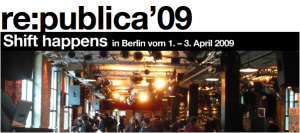 Finally, I am coming around to blog my notes from the Lotusphere 2011 press conference.
Finally, I am coming around to blog my notes from the Lotusphere 2011 press conference.
I won’t regurgitate any press releases, you can easily find them at the IBM Lotusphere press room, rather it’s notes about the questions (and consecutive) answers (with an occasional snappy remark by me, of course).
So what was in there? First, recapitulations of the things we’ve heard already at the opening session, ie. the importance of mobile social business (stressing that clients will be there for all major mobile platforms), the upcoming Project Vulcan-enhanced new Connections next, Sametime next and everything next, and the announcement of new programs to help partners embrace the “growing social business market opportunity”.
I think that “embrace to leverage” is good, needs some coaching and education and IBM is stepping up their efforts, see eg. the Become a Social Business site, aimed not only at customers but also at partners et al. Fitting that they’re taking great efforts at also educating and motivating IBM staff. As Paul Greenberg tweeted: “They are not only eating their own dogfood, they’re breeding their own dogs!” – yes, and it’s a great investment too: “IBM aims to train 50K of its employees on #socbiz this year, so they can be more effective and help others” as Larry Hawes says correctly.
In the question round it started off with an analyst asking how IBM prioritizes open standards – and which ones?
Alistair Rennie chose the safe road and answered that – whether inside or outside the firewall – with standards there’s always a spectrum (or as I would say, there’s legion to choose from and some of them don’t catch on even if they are very cleverly devised and all). So, for IBM HTML5 is a big one, OpenSocial, OAuth, Activity Streams and more. This parallels what eg. RIM is thinking (there should be no Apps needed for the web, native access is cool because it also allows you to employ your existing tools) and is mirrored as well in the provision of the Social Business Toolkit (more on this later, I have to sort out some things on this, like seeing through my notes from Charlie Hill’s sunday morning talk “Executive Insight: The IBM Social Business Platform”)
How long will it take for widespread adoption?
Again Alistair Rennie took to it – explaining that IBM sees it as a business-driven thing (and I say is obviously grounded in it’s approach, you better be when you’re that old …, no need for too much revolutionary /missionary zest), where you need to be able to act sensibly and contextually relevant. But the social business mindset can be applied to a wide variety of business processes and the advantages are tangible (sure, they are I say) so he’s optimistic about adoption.
What are the ideas to help people filter through the information avalanche? (this wasn’t the exact wording of the question, but close enough -I thought it a bit awkward, ie. remember the notion of Clay Shirky – filter failure, not information overload)
Two elements – one filtering (yes, analytics, applying semantic analytics to extract meaning and act upon it), the other (predicitive) analytics – especially important when you think of the synchronization of activity streams on mobile devices. You don’t want all info tidbits presented there, so you need to differentiate the super-important or urgent from the rest. So you filter stuff in the back, then push the best onto the device. The exact methods to do this are in the working, but it’s essential that this filtering and high-lighting is done in an open and transparent way.
Concerning organizational change management – what is IBM doing to help people understand the importance? Does it reshape fundamental (departmental) organizational processes? What are IBM’s experiences?
Hmm, here I didn’t get the whole answer, but I am pretty sure it revolved around demonstrating benefits, educating and coaching (see above on what IBM is doing, yes) and the need for an (internal) team of ambassadors (think what the BlueIQ team has done for IBM) who explain, show and tell, … Alistair also pointed out that while it always depends on the context, ie. industry and business segment, IBM has brought a row of clients to #ls11 that can give insight into what they’ve done, so go ahead and talk to them.
So what is part of Project Vulcan?
Short answer: last year it was a project not a product, this year there’s tweaked products, ie. Notes next is heavily Vulcan vision influenced. Equally the mobile solutions (there was talk about this at ls10 for sure, see eg. my write-up of last year’s analyst briefing), the provision of the Social Business Toolkit etc. So basically Project Vulcan is everywhere …
There were more questions on Symfony, the dangers risks of social software, ie. downsides of transparency, and also on how much IBM is investing and expecting to earn. Needless to say that this last one was asked by a guy from forbes.com (I bet you knew that already, huh?). He got a short answer, ie. core focus, big play, big expectations (I bet you knew that already too, huh?). The longer answer involved some grounded reasoning around the benefits not alone being in saving money, but eg. also driving down cycle-time, time to market etc. And there was a nice remark on CSC seeing social business is working and consequently not putting the numbers on close scrutiny all the time. So much for this zombie-alike recurring theme of “We can’t do this as long as we don’t have numbers” (aka the RoI discussion et al.).
ps. very geeky picture above (“it goes to 11, we checked”) by The Original Turtle
